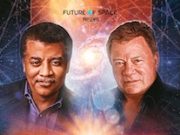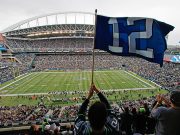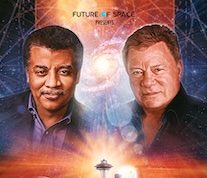Seattle’s Chilly Winter Reception Longs for Spring

The Pacific Northwest has long been regarded as that well-hydrated corner of the American biosphere that is teeming with fresh ideas —an evergreen coloring space that is naturally resourceful, where people work hard, salmon climb ladders to spawn, and, barring the occasional volcano or forest fire, where the air and water are actually good for you.
The Seattle mystique has left the impression that industry leaders like Boeing, Microsoft, Amazon, and even Starbucks, are more missionary than mercenary. American business trusts its enterprise productivity and office Windows to Microsoft. Boeing is the wind beneath our wings for air travel. You can fill up your cargo bay with wholesale savings at a Costco warehouse. And you can order practically anything from “The Everything Store,” Amazon.com, with one click, or just your voice if you know “Alexa.” Seattle24x7 is one of the region’s biggest cheerleaders.
So it can be disconcerting to reflect that between the filtered rays of light inside the Emerald F
Amazon held off charging, or paying, retail sales taxes in every state of the union (save Washington) for years and has been unyielding in its anti-tax positions against the Seattle City Council, threatening to halt new construction or back away from signing new leases. Microsoft fought an existential copyright battle with Apple, then went to war with the U.S. Justice Department over anti-trust issues that threatened to break the company into pieces. Now Howard Schultz, the former CEO of Starbucks, has pronounced that his success as a coffee merchant qualifies him to be the president of the United States. Spring is coming!
Amazon’s Heart of Darkness on Unions

As T
“Given the realities of our economy,” writes Casey Newton in The Verge, “an economy that Amazon is relentlessly transforming according to its narrow self-interest — it’s also only natural that many New Yorkers wanted nothing to do with it.”
The HQ2 contest was run as a kind of Dutch Auction, a contest where Amazon bet that a competitive, blind bidding process would produce the most generous suitor. “The company’s insistence that its multibillion-dollar giveaway
The lack of transparency manifested in a stalemate when the question of labor unions arose. The presumption that Amazon was neutral on the subject of unionization was clearly misunderstood. Amazon is profoundly anti-union. The company has produced actual training videos on how a manager can detect and suppress the first hints of employee interest in that particular direction. So the cat-and-mouse game with New York union officials like the AFL-CIO played like a Rorschach test with New Yorkers thinking they saw a negotiable issue on the table. Amazon was on another planet.
Complicating the descending storm front was the fact that Amazon founder Jeff Bezos found himself the victim of a New York-based media assault. The Amazon chairman made it
Snowpocalypse 2019
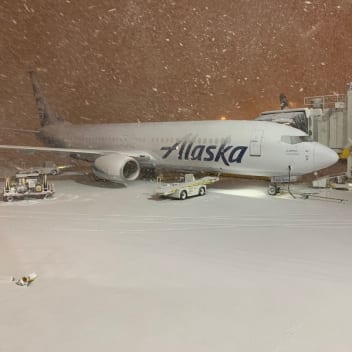
The extreme weather event that Puget Sound residents will be talking about for years to come only added to our wintry discontent.
Thousands of homes were without power as the region’s three major energy providers — Puget Sound Energy (PSE), Seattle City Light and Snohomish County PUD — struggled to restore downed lines. Power outages peaked at around 150,000 customers in the Puget Sound, according to local media reports.
The February storm officially dropped 11.4 inches of snow on the city, pushing the February total to 14.1 inches, an inch ahead of the previous record of 13.1 inches set in 1949. The National Weather Service reported an overall snowfall total of more than 20 inches, the snowiest month at Sea-Tac Airport in 50 years. Before three storm events in the span of a week, Seattle had been snowless this winter.
Alaska Airlines was especially hard hit by the blizzards. “The financial impact of these flight cancelations is expected to be about $20 million, with $15 million in lost revenue, $7 million in incremental costs, partially offset by $2 million in fuel savings,” wrote veteran airlines analyst, Helane Becker. “Alaska canceled about 1,100 flights over a 10-day period.”
Sea-Tac Airport also spent about $1 million on material for snow management this month – twice the average for an entire winter season over each of the past five years, spokesman Perry Cooper said.
Gov. Jay Inslee has declared a state of emergency throughout Washington in response to the snowstorm. King County Executive Dow Constantine called it a “once every decade or two occurrence.”
The “Trump-Schultz” Coincidences
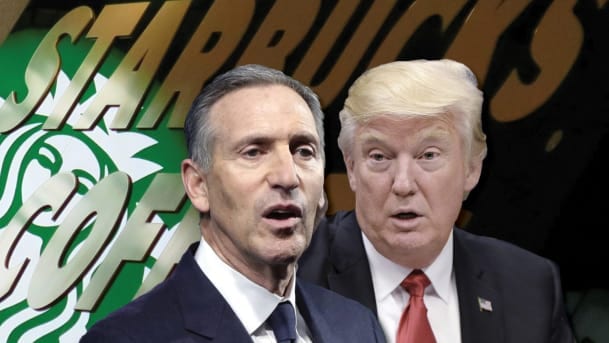
Having realigned America’s coffee culture, translating the depression-era trope of ”Brother, can you ‘spare a dime?’ to “$4.95 for a double-shot cafe latte with extra foam and pumpkin spice,” Howard Schultz has applied the same calculus in re-pricing his self-worth as a political leader. Coincidentally, the same massive inflation has been used by the current “orange swan” president, Donald Trump.
Like the “Lincoln-Kennedy coincidences,” but far from trivial, the similarities between Howard Schultz and Donald Trump are too many to ignore. Here’s the short list:
1. “B” as in Business and Billionaire. Both men are billionaires who operate under the assumption that personal wealth is a way to score future performance in civic governance. This is a fallacy. The U.S. government is a “not-for-profit” enterprise designed for compromise among its elected officials, not profit motive. A president must find purpose and compassion serving a citizenry that lives far beneath the life experience of a billionaire.
2. Public Service, Not. Like Trump, Schultz has had no experience in government service and has never held public office. The Trumpian “CEO model” where others carry out the actual work like board members (in Trump’s case, such efforts derided and/or thwarted) has proven to be untenable resulting in a revolving door to the Cabinet.
3. The “Reality-Realty” Brand. Both men trade on the value of their brand’s name and the visibility of their real estate locations. Macdonald’s founder, Ray Croc, came to realize that he was not so much in the hamburger business as the real estate business. Same with Starbucks. Location rules.
Real estate’s “zero-sum” form of negotiating is antithetical to the myriad of matters that confront governance. Real estate and government don’t mix. Like trying to build a border wall on other people’s land, or convincing dictator Kim Jung-Un that the beachfront property in North Korea is where the real power of his regime lies.
4. “No-It-Alls” The two are both contrarians who lean on negativity and disruption. Schultz has offered no affirmative reason to vote for his policy planks (he doesn’t offer any). Rather he asks you to vote against political polarities, even blaming the far left in New York City for driving away Amazon from its expansion plans.
Setting an agenda simply by mediating the political continuum so to speak, is intellectually lazy. It’s also a ”reactive” position compared to a “proactive“ one, and something other than authentic.
5. No “Party” for Old Men. Both men changed political parties for personal advantage. Trump was a lifelong Democrat who instigated the “birther movement” questioning president Barrack Obama’s citizenship and chose the Republican party as most likely to adopt his racist ploys. Howard Schultz is a lifelong Democrat who is abdicating his party role for purposes of expediency by running as an Independent candidate.
6. Racial Indifference. Both men have been accused of
7. “Outliers.” Both impresarios believe their fierce independence is an asset. But coalition-building is essential to achieving political consensus. Only the venerable Bernie Sanders who has caucused with his U.S. Senate colleagues for decades has shown the skills to bridge the great divide as an Independent.
8. Bad Sports. Trump’s strategy for the US Football League to go head-to-head with the NFL in a prime-time Fall TV challenge was disastrous. Such poor judgment is widely considered to have led to the league’s demise. Howard Schultz lied to Seattle when he sold the Seattle Supersonics, the city’s NBA franchise, stating he was unaware that an ownership group from Oklahoma City had any intention of relocating the team back to OKC. Selling out a sports franchise is a heartless act that Schultz says he regrets every time he sees a child wearing a Sonics jersey. Too late, Howard. Your true colors are something other than Sonics’ green and gold.
9. Breakneck Expansionism. The proliferation of Starbucks restaurants marks a level of ambition that might only be comparable to Donald Trump’s brazen attempts to plaster his name on anything he can: Trump-branded Water, Vodka, Steaks, Wine, Perfume, and even Coffee are all products that Trump tried and failed.
10. A Foreign Conflict of Interests. Both men are conflicted by business interests in other countries. Trump’s obsession lies with Russia where he has hoped to build a skyscraper bearing his name. Schultz is what Forbes magazine has called “
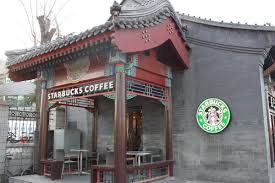
Starbucks now has 2,000 stores in China, quadruple its total just five years ago. Shanghai (432) has overtaken Seoul and New York as the city with the most Starbucks cafes. Other companies’ CEOs may stress about China’s recent stumbles; not Schultz. He believes an unstoppable expansion of China’s middle class will benefit his company, regardless. “One day,” Schultz told analysts in January, China “could very well be larger than the U.S. business.” What that could mean for U.S. Trade Policy under a Schultz presidency is anybody’s guess. [24×7]



